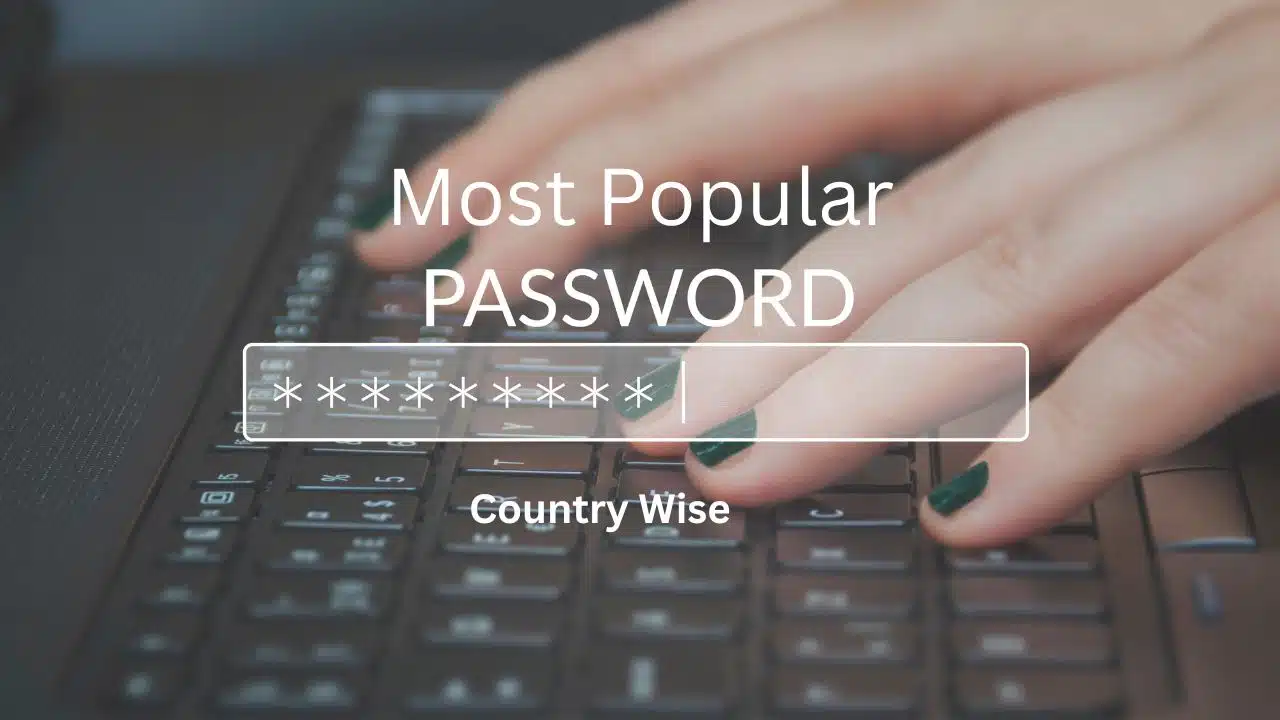Passwords are an essential part of our digital lives, serving as the first line of defense against unauthorized access. However, despite repeated warnings from cybersecurity experts, millions of users worldwide continue to choose weak and easily guessable passwords.
In 2025, NordPass, in collaboration with NordStellar, conducted a comprehensive analysis of global password habits, revealing fascinating insights into how people create and use passwords across 30 countries.
Using a 2.5TB database sourced from publicly available information, this study identified patterns, cultural influences, and alarming trends. This article explores the findings in detail, country by country, and provides practical advice for improving password security.
Global Trends in Password Usage
1. Numeric Passwords Dominate
Simple numeric combinations like “123456” and “123456789” consistently appear as the most popular passwords in almost every country. These passwords are easy to type and remember, but they offer minimal security, making users vulnerable to attacks.
2. Keyboard Patterns
Keyboard patterns such as “qwerty123” and “qwerty1” are among the top choices globally. These passwords leverage convenience but are highly predictable, especially for hackers using brute force methods. In regions like Belgium and France, unique layouts like “azerty” reflect local keyboard preferences.
3. Cultural and Local Influences
Many countries show a connection to their culture through passwords. Local words, names, and symbols—like “marseille” in France, “benfica” in Portugal, and “iloveyou” in the Philippines—frequently appear in password rankings.
4. Sports and Pop Culture References
Sports fandom and pop culture significantly influence password choices. Examples include “colocolo” (a Chilean soccer team), “liverpool” (a football club adored in Ireland and the UK), and “pokemon” in Australia.
Country-Specific Password Insights
Australia
Australians prefer simplicity with “password,” “qwerty123,” and “123456” leading the list. Notable entries include “lizottes” (6th) and “pokemon” (16th), showing influences from local interests and pop culture.
Austria
In Austria, “123456,” “123456789,” and “Abcd1234” dominate. The inclusion of “michael” (14th) points to the popularity of personal names in password creation.
Belgium
Numeric passwords like “123456” and keyboard patterns such as “qwerty123” and “qwerty1” are common. “Azerty,” reflecting the Belgian keyboard layout, ranks 4th, highlighting the influence of regional preferences.
Brazil
Brazilian users rely on “123456,” “qwerty123,” and “qwerty1.” Local patriotism is evident with “brasil” (9th), while the overall trend leans heavily on simplicity.
Canada
Canadians use “qwerty123,” “123456,” and “qwerty1.” A unique password specific to Canadian culture ranks 18th, though the data leaves its identity a mystery.
Chile
Chilean favorites include “123456,” “12345678,” and “Chile.” Sports culture influences passwords, with “colocolo,” a popular soccer team, ranking 8th.
Colombia
Common passwords in Colombia include “qwerty123,” “qwerty1,” and “12345678.” The inclusion of “Colombia” (7th) highlights a sense of national identity in password selection.
Czech Republic
The Czech Republic has numeric combinations like “123456” and “12345678” at the top. Personal names such as “martin,” “michal,” and “veronika” also rank high, reflecting a reliance on familiar terms.
Denmark
In Denmark, passwords like “123456,” “qwerty123,” and “qwerty1” are dominant. Localized terms like “mikkel” (12th) and “hejmeddig” (13th), meaning “hello to you,” stand out as uniquely Danish.
Finland
While “qwerty123” and “qwerty1” are common, Finland brings a local touch with “salasana,” meaning “password,” ranking 3rd. This reflects a mix of global and local habits.
France
French users favor “123456” and “123456789.” The keyboard-specific “azerty” is another top choice. A cultural nod appears with “marseille” (7th), reflecting regional pride.
Germany
Germany follows a numeric trend with “123456,” “123456789,” and “12345678.” The unique entry “dragon” (11th) suggests an influence of fantasy or gaming culture.
India
Indians favor simple passwords like “123456,” “password,” and “12345678.” A local touch is seen in “india123” (9th), underscoring a patriotic element.
Ireland
In Ireland, “123456” and “password” are joined by “qwerty123.” The football-inspired “liverpool” ranks 4th, showcasing the strong influence of sports culture.
Italy
Italians prefer numeric sequences like “123456.” A unique entry is “cambiami” (2nd), meaning “change me,” suggesting awareness of password security recommendations.
Japan
Japan’s passwords include “123456789” and “12345678.” Keyboard patterns like “1qaz2wsx” also feature, reflecting a creative but still predictable approach.
Malaysia
In Malaysia, “123456,” “qwerty123,” and “123456789” are common. The affectionate “sayang” (13th), meaning “love,” adds a personal touch.
Mexico
Mexicans use numeric passwords like “123456” and “123456789.” Names such as “alejandro” (13th) and “carlos” (16th) highlight a trend toward personalization.
Netherlands
The Dutch lean on “qwerty123,” “qwerty1,” and “123456.” “Welkom01,” meaning “welcome,” ranks 4th, showing a friendly yet insecure choice.
Norway
Norwegian users prefer global patterns like “123456” and “qwerty123,” but local entries such as “passord” (password) and “hemmelig” (secret) also feature.
Philippines
Filipinos use “123456” and “qwerty123” alongside the heartfelt “iloveyou” (8th), reflecting cultural warmth in their choices.
Poland
Poles rely on “123456,” “qwerty123,” and “qwerty1.” The patriotic “Polska” (9th) shows national pride in password selection.
Portugal
In Portugal, numeric combinations dominate. Soccer club names like “benfica” (9th) and “sporting” (11th) underline the influence of sports culture.
United Arab Emirates (UAE)
UAE users favor “123456” and “qwerty123.” A notable entry, “pakistan” (11th), reflects the country’s multicultural demographic.
United Kingdom (UK)
British users commonly use “password,” “qwerty123,” and “qwerty1.” The football-inspired “liverpool” (5th) shows the nation’s passion for sports.
United States
Americans mix classic options like “123456” and “password” with cultural entries like “secret” (1st) and “baseball” (14th), reflecting national identity.
Why Weak Passwords Remain a Problem?
1. Convenience Over Security
Many users prioritize easy-to-remember passwords over secure ones, unaware of the risks.
2. Lack of Awareness
Despite rising cybersecurity education, many users remain uninformed about how weak passwords make them vulnerable to hacking.
3. Resistance to Change
Even when advised to adopt stronger passwords or password managers, some users resist due to perceived complexity.
How to Create Strong Passwords?
- Use Unique Passwords for Each Account: Avoid reusing passwords to reduce the risk of multiple accounts being compromised.
- Incorporate Complexity: Combine uppercase letters, lowercase letters, numbers, and symbols.
- Use a Password Manager: Tools like NordPass can generate and store strong, unique passwords.
- Enable Two-Factor Authentication (2FA): Add an extra layer of security to your accounts.
Takeaway
The study by NordPass highlights that while password habits vary by country, many users worldwide still prioritize convenience over security. With growing threats in the digital landscape, it’s more crucial than ever to adopt strong password practices. Let’s learn from these findings and take steps toward better cybersecurity.




































